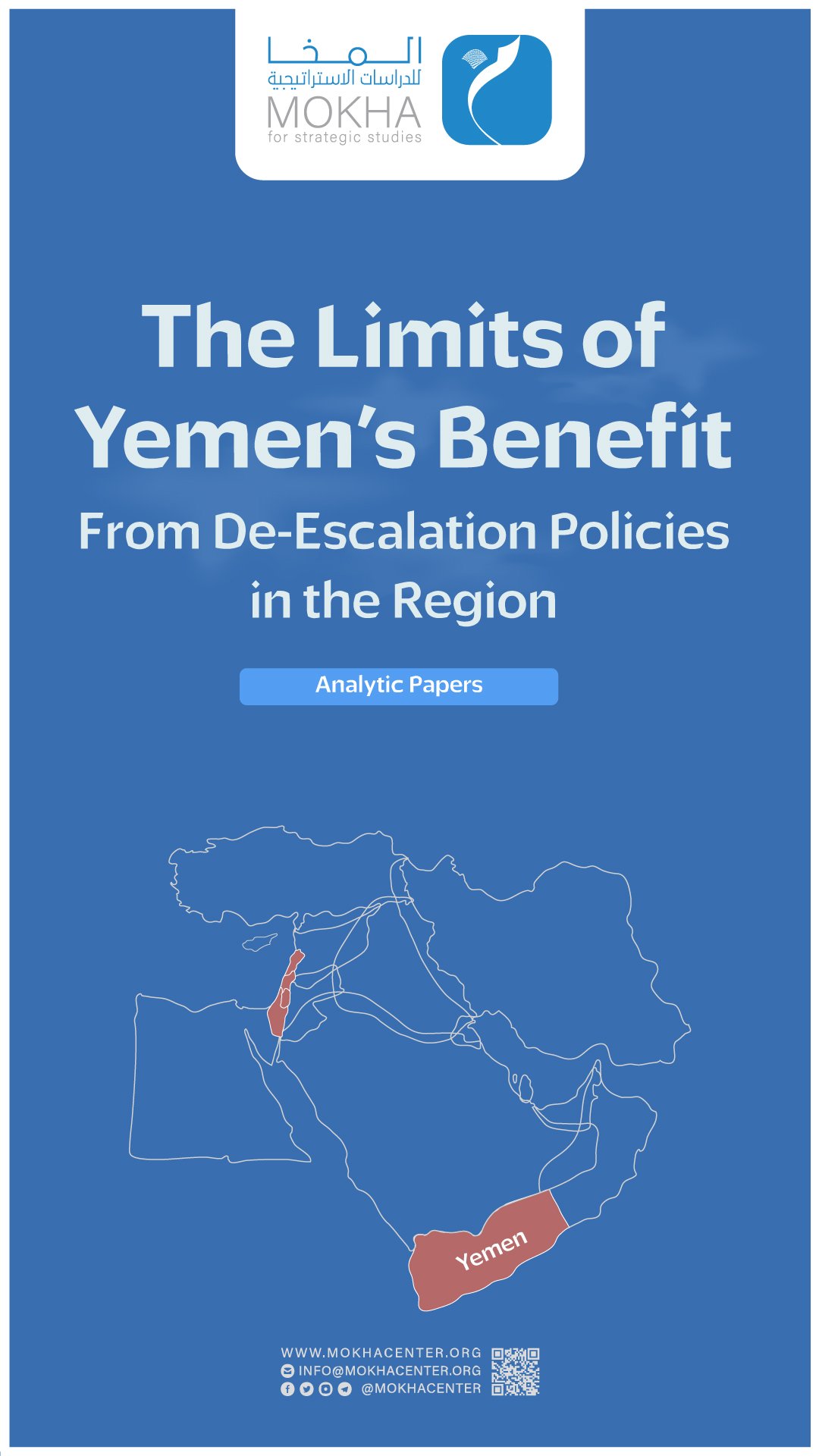Presidential Leadership Council Postponed Bank License Cancellations: Possible Reasons and Scenarios

| Getting your Trinity Audio player ready... |
Introduction
Economic measures play a crucial role in the conflicts in Yemen, particularly in the ongoing clash between the internationally recognized government and the Houthi group, since 2014. These economic measures intensified during the fragile “truce” agreed upon in April 2022, especially after the Houthis blocked the legitimate government from exporting oil in October 2022. The situation has further deteriorated recently, with the Houthis attempting to undermine the legal authority of the government by printing new coin currency (100-riyal denomination) to replace damaged paper money.
In response to that, the Central Bank of Yemen in Aden issued a series of decisions, the latest being Resolution No. 30 on July 10, 2022. This resolution revoked the work permits of six banks that failed to relocate their headquarters to Aden and notified the SWIFT system to cease transactions with them. This led to heightened tensions between the Houthis and the legitimate government, as well as Saudi Arabia. The Houthis threatened military action against Saudi interests in response to these decisions, prompting intervention from the United Nations’ Office of the Special Envoy for Yemen, Hans Grundberg, who called for postponing the implementation of these decisions until the end of August.
The Presidential Leadership Council (PLC) initially agreed to negotiate the economic issues under specific conditions, but the Houthi group rejected these terms. As of this writing, discussions on this issue are still ongoing. This raises questions about why the PLC decided to delay implementing the Central Bank’s decisions and what possible scenarios could emerge regarding this issue.
Clash with Economic Tools
The use of economic tools escalated during the humanitarian “truce” agreed upon on April 7, 2022. Within a few months, the Houthis attacked oil transport ships at export ports in Hadhramaut and Shabwa, launching an economic war against the legitimate government and causing significant financial losses. This conflict peaked in March 2024, when the Houthis announced the minting of a 100-riyal coin. The Central Bank rejected this decision, deeming the new currency counterfeit and illegal, and it condemned the minting as a dangerous and unacceptable development.
In early April 2024, the Central Bank issued a directive to the main banking centers to relocate to Aden, giving a two-month deadline for compliance. After the deadline passed, on July 10, the Central Bank revoked the banking licenses of several local banks that failed to relocate. The decision, addressed to all banks, banking companies, exchange establishments and remittance agents in the Republic, ordered the cessation of dealings with the following banks: Al-Tadhamon, Yemen-Kuwait, Yemen and Bahrain Shamil, Al-Amal Microfinance, Al-Kuraimi Islamic Microfinance, as well as Yemen. Despite the suspension, these banks were required to continue providing services to the public and meet their customer obligations until further notice.
In response, the Houthis escalated their actions against the Central Bank’s decisions. The Central Bank in Sana’a decided to cease dealings with 12 banks operating in areas under the legitimate government’s control. On July 7, Houthi leader Abdul-Malik al-Houthi threatened to strike Saudi airports, banks and ports, accusing Riyadh of attempting to “transfer banks from Sana’a.”
- The Presidential leadership Council retreated.
Despite popular support for the decisions made by the Central Bank in Aden and the anticipated negative impact on Houthi authority, there are signs that the PLC might be reconsidering these measures. A government official disclosed that the UN envoy is exerting significant pressure on the council and the legitimate government to halt and reverse the Central Bank’s actions. To prepare the public for the potential postponement, a government source announced the arrival of Central Bank Governor Ahmed Al-Maaqi in Riyadh — a move often seen by Yemenis as a prelude to unpopular decisions and a step toward retracting previous decisions. However, Governor Al-Maaqi denied traveling to Riyadh, stating that he is performing his duties in Aden and criticized the spread of misinformation, even from government sources, as irresponsible.
On July 13, a letter from the UN envoy to Presidential Leadership Council Chairman, Rashad Al-Alimi, was made public. In the letter, the envoy expressed concern about the suspension of licenses for six banks and the subsequent communication with correspondent banks and the SWIFT system, which could cut these banks off from international financial networks. The envoy warned that the Central Bank’s decisions could harm the Yemeni economy, affect the livelihoods of ordinary Yemenis across the country and risk escalating tensions, potentially extending to the military sphere. Al-Alimi urged the legitimate government and the Central Bank to postpone these decisions until at least the end of August. The envoy also called for support in initiating a UN-mediated dialogue to address recent economic developments in Yemen. His office will provide more details to the relevant parties within the Yemeni government and the Central Bank of Yemen, including an agenda for dialogue with the Houthis.
In an emergency meeting held on July 12, the PLC expressed its initial agreement to engage in negotiations, stipulating that any dialogue on the economic file must include a clear agenda for addressing the resumption of oil exports, unification of the national currency and the abolition of arbitrary measures against the banking sector. The council affirmed its ongoing efforts to counter the arbitrary practices of the “terrorist Houthi militia,” while also showing the utmost flexibility and openness to discuss any proposal. This move was interpreted as an acceptance of the UN envoy’s request to postpone the implementation of the Central Bank’s decisions, which enjoy broad popular support.
Why did the Presidential Leadership Council agree to postpone
the implementation of the Central Bank’s decision?
Context analysis shows that there are three reasons behind the PLCs conditional approval of the UN envoy’s request to postpone the implementation of the Central Bank’s decision to withdraw the license from the banks. These reasons are:
- The Presence of Saudi Intervention:
The Houthis directed their pressure toward Saudi Arabia. In his speech on July 7, Abdul-Malik al-Houthi threatened to strike Saudi airports, banks and ports, responding to Riyadh’s alleged intention to “move the banks from Sana’a.” While the Houthis are not keen on reigniting the war at this stage, it was evident that continuing with the Central Bank’s decisions would compel them to target Saudi Arabia, a scenario Riyadh is keen to avoid. To circumvent this, Riyadh apparently instructed the UN envoy to draft the letter addressed to the PLC members and pressured the council to comply. This approach provided the PLC with a suitable way to retract the decisions.
The experiences of previous stages support this conclusion. Riyadh’s negotiations with the Houthis led to the creation of the so-called settlement map. Upon its completion, Riyadh presented the map to the UN envoy, who announced it and facilitated the signing procedures between the legitimate government and the Houthis.
- Difficulty implementing decisions:
Implementing the decision to revoke the licenses of the six banks and cutting them off from the SWIFT system poses significant challenges in itself that complicate its execution. This is primarily because nearly 80% of the population, economic activity and financial weight are concentrated in areas under the Houthi’s control. Relocating these banks to Aden would likely result in their closure, potentially exacerbating economic division and creating substantial risks that could impact the livelihoods of people in those areas.
While the decisions made by the Central Bank in Aden aim to safeguard national capabilities, restore state authority, strengthen economic resilience and protect the national currency, some measures are also being utilized as tools in the broader conflict with the Houthi group. Some decisions may be aimed at pressuring the Houthis into negotiations and facilitating the resumption of oil exports, a critical revenue source for the legitimate government.
Therefore, the Presidential Leadership Council, supported by Saudi Arabia, chose to not cancel the Central Bank’s decision immediately but instead postponed its implementation until the end of next month (August). This postponement aligns with UN envoy Rashad Al-Alimi’s desire to maintain pressure on the Houthi group, ensuring their engagement in discussions. This approach was outlined in the envoy’s letter to the Presidential Leadership Council, urging the delay of the decision’s implementation.
- Avoiding the path of war:
Despite the Presidential Leadership Council’s affirmation of its commitment to counter what it refers to as the “terrorist Houthi militia,” and the Minister of Defense, Lieutenant General Mohsen Muhammad Al-Daari, convening an extensive meeting with defense leaders and the General Staff in Aden on July 11, the focus was on assessing the military situation at the frontlines amid escalating threats from the Houthi militia. The meeting commended the high combat readiness of the armed forces and emphasized the need for coordinated efforts with all relevant departments to bolster readiness.
However, the decision of the Presidential Leadership Council was widely perceived as a step to avoid potential “military escalation,” as noted by UN envoy Al-Alimi.
Where are things headed?
Current indicators suggest that developments in this matter are evolving along three potential scenarios. These scenarios range from ongoing conflict through economic measures, where the legitimate authority struggles to enforce recent Central Bank decisions. regional and international efforts may succeed in pushing both parties into negotiations that yield solutions to de-escalate tensions. Also there is a scenario where economic tensions escalate, potentially triggering a military confrontation between the parties involved.
- The first scenario: Things remain calm but without
implementing the decisions of the Central Bank.
The Houthi group remains firm in rejecting negotiations on economic issues outside the framework of the settlement map. Meanwhile, Saudi Arabia and other parties continue to exert pressure to prevent the legitimate government from implementing Central Bank decisions, particularly those concerning bank license withdrawals and currency cancellation, to prevent escalation to military conflict.
This scenario is backed by Saudi Arabia’s determination to prevent any Houthi attacks within its borders and the Houthis’ insistence on negotiating only within the framework of a political settlement. The Houthis perceive some Saudi reluctance on this matter and a lack of willingness from other parties to engage in negotiations outside the settlement framework. Negotiations under the current power dynamics, especially following the Red Sea incidents, are seen as potentially yielding significant gains.
- The second scenario: This involves negotiations and
a reduction in the intensity of the economic conflict.
This scenario is supported by pressures from the UN envoy, Oman, as well as public discontent. Deteriorating living conditions for both the Houthis and the legitimate government, coupled with concerns over potential social unrest, compel them to seek solutions through negotiations with each other. Negotiation and problem-solving are seen as the least costly option for nearly all parties involved. Furthermore, there is a collective aversion to war among the Houthis, the Presidential Leadership Council and Saudi Arabia at this stage, which could drive them toward negotiations aimed at addressing urgent challenges. It has been suggested that some decisions by the council are aimed at encouraging the Houthis to engage in negotiations.
Contrary to the supporting factors, there is an unwillingness among parties in Saudi Arabia and other international actors to pursue this path. They fear that it could ultimately relieve the Houthis of the popular pressure they currently face. Additionally, the Houthi group’s stance remains a significant barrier to this approach. On July 13, Houthi Deputy Foreign Minister Hussein Al-Ezzi explicitly stated that the Houthis categorically reject engaging in negotiations about the economic file unless it is within the framework of discussing the implementation of the agreed-upon road map. The Houthis are concerned that negotiations concerning the economic file might divert attention from negotiating the settlement map, which they believe offers substantial gains. These gains include legitimizing their position and potentially achieving economic benefits solely through negotiations on the economic file.
- The third scenario: This involves military escalation.
While many parties involved in the economic conflict do not desire this scenario, its likelihood remains high. The Presidential Leadership Council faces significant public pressure, making it difficult to completely reverse the Central Bank’s decisions without negotiations. Such a reversal would also incur substantial costs in terms of public frustration and a decline in confidence in the Presidential Leadership Council and the legitimate government, especially following widespread demonstrations in Ma’rib, Taiz and Al Khawkhah in support of the Central Bank’s decisions in Aden.
The economic hardships faced by the legitimate government are pushing it toward the option of escalating economic measures, a path that would severely impact the Houthis. This may prompt the Houthis to follow through on their threats to attack fronts controlled by the legitimate authority or vital Saudi interests, potentially leading to heightened violence. The Houthis’ tendency to leverage threats against Saudi Arabia, coupled with their strategic advantage in the asymmetric war in the southern Red Sea, adds to the potential for escalation.
However, most parties are not adequately prepared for a new round of warfare due to its high costs and the risks of defeat. Therefore, military engagement may be used primarily as a tool for coercion, pressure or deterrence rather than as a definitive escalation to full-scale conflict.
Resources
See: The repercussions of the economic escalation in Yemen and future scenarios, Al Mokha Center for Strategic Studies, available at the following link: https://n9.cl/yi1nq9
A special source for Al-Masdar Online: The Central Bank cancels the licenses of a number of banks for not complying with the decision to move their headquarters to Aden, Al-Masdar Online, accessed on: 7/15/2024, available at the following link: https://almasdaronline.com/articles/298031
The banking conflict between Aden and Sana’a threatens to collapse the truce in Yemen, Al Jazeera Net, accessed on: 7/15/2024, available at the following link: https://n9.cl/dfy0z
Saudi Arabia threatened to strike airports and banks.. Abdul-Malik Al-Houthi ignites controversy, and this is how the responses came, C. that. that. Arabic, accessed on: 7/15/2024, available at the following link: https://arabic.cnn.com/middle-east/article/2024/07/08/hotuhi-threatens-saudi-striking-airports-banks
The Ministry of Defense discusses the military situation and urges enhancing readiness to deter militia threats, Al-Sahwa Net, on: 7/15/2024, available at the following link: https://alsahwa-yemen.net/p-76038
A day after the envoy’s message… a demonstration in Marib to support the decisions of the Central Bank, Al-Masdar Online, on: 7/15/2024, available at the following link: https://almasdaronline.com/articles/298232




